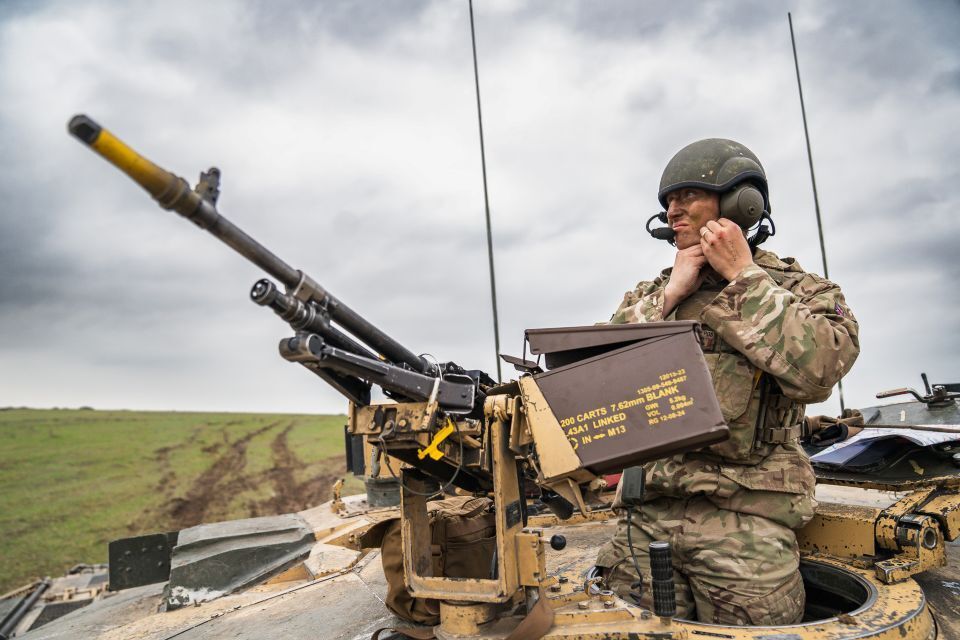QinetiQ achieves UK’s first aircraft and autonomous drone teaming

Image courtesy QinetiQ
The trial – which took place in collaboration with the Defence Science and Technology Laboratory (Dstl), the Royal Navy and the Air and Space Warfare Centre (ASWC) - saw a QinetiQ jet aircraft take off from Ministry of Defence (MoD) site Boscombe Down in Salisbury, while a modified Banshee Jet 80 drone was launched from the MoD Hebrides range, off the north-west coast of Scotland.
Flying from Boscombe to the Hebrides, the aircraft soon gained control of the Banshee, with the drone receiving its orders from the aircraft before automatically conducting the mission assignment, flying at 350 knots.
The mission was completed not only by the live Banshee but also a number of digital Banshees within a live-virtual swarm, successfully acting in a co-ordinated manner.
The Banshee was equipped with QinetiQ’s Airborne Command and Control for Swarm Interoperable Missions (ACCSIOM) technology, which allows the drone to communicate with the crewed aircraft using the same messaging format as the standard NATO Link 16 datalink. Instrumental to the deployment of autonomous air platforms, the technology provides an airborne gateway which can receive and translate both long range and short range communications between drones while in-built safety systems can override the autonomy to ensure the drone stays at all times within a safe operating area.
The success of this trial demonstrates that the combination of Crewed and Uncrewed Teaming between current front line combat aircraft and next generation drones can be potentially achieved successfully with the existing combat air fleet, while offering the potential to increase combat capability in an affordable manner.
Alan Hart, Managing Director Science & Technology, QinetiQ said: “This transformative trial is a great example of collaboration and technology leadership in aviation defence capability, as we seek to meet the ever-changing requirements of those on the front line. It represents a significant advance in developing technologies that will allow uncrewed systems to operate seamlessly with current aircraft, providing the basis for air operations for the next twenty years.”
Minister for Defence Procurement, James Cartlidge said: “Our Armed Forces strive to be at the cutting-edge of technology. The ability to team crewed and uncrewed systems is an important step forward in our ability to seize the opportunities inherent across drones. Using British engineering expertise, this successful trial is another excellent example of what happens when the MOD and industry experiment and test hand-in-hand – a core approach in our UK Defence Drone Strategy and Integrated Procurement Model.”
Peter Stockel, Dstl’s Chief for Robotic and Autonomous Systems said: “This UK first paves the way in de-risking the barriers to adopt autonomous systems through advancing autonomy capabilities that are easier to integrate and also address regulatory requirements. The project has been about ‘teaming’ throughout, not only for the crewed-uncrewed technologies and their integration, but also as an exemplar of MOD, Dstl, QinetiQ and other industry partners working collaboratively to accelerate advanced autonomy research and development for operational advantage at pace through more open and agile approaches and real world experimentation.”
Commodore Steve Bolton, Deputy Director Aviation Programmes & Futures, said: “I am delighted with the results of this trial. The development of Crewed–Uncrewed Teaming, as one of the Royal Navy’s many aviation transformation initiatives, seeks to embrace the onset of autonomy and Human Machine Teaming, to expand our aviation combat mass and operational advantage at sea.”
This flight trial is part of the UK’s Accelerating Air Autonomy Capability Experimentation (A3CE) R&D programme and is the culmination of a year’s planning and development activity by QinetiQ and Dstl that has seen a series of synthetic and flight de-risking trials, assessment and testing.











